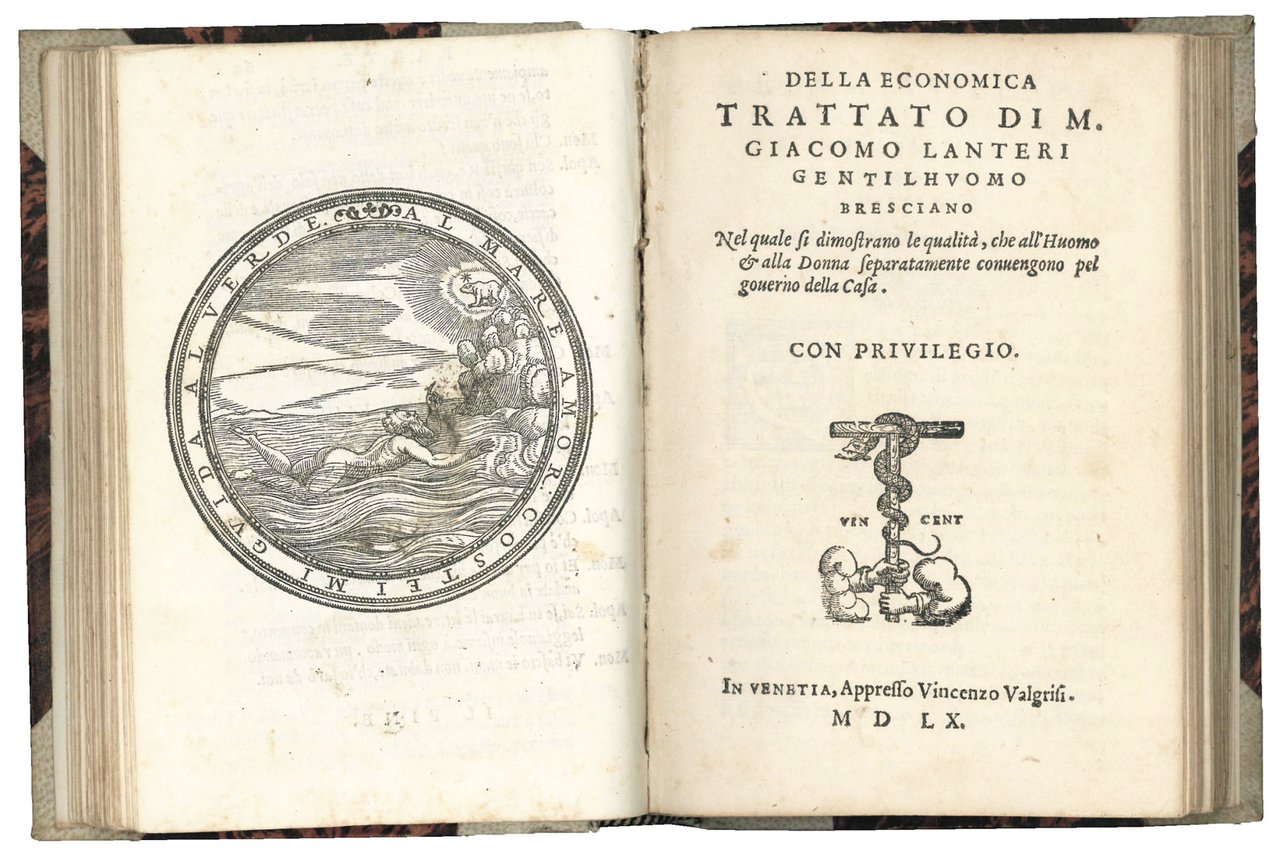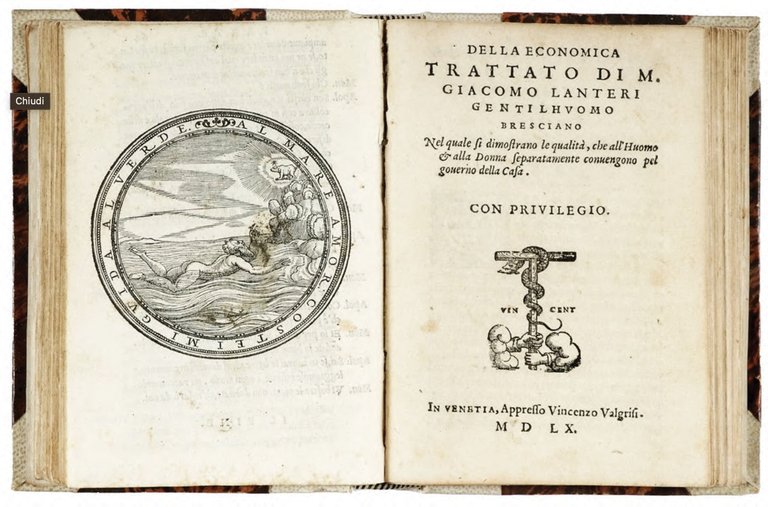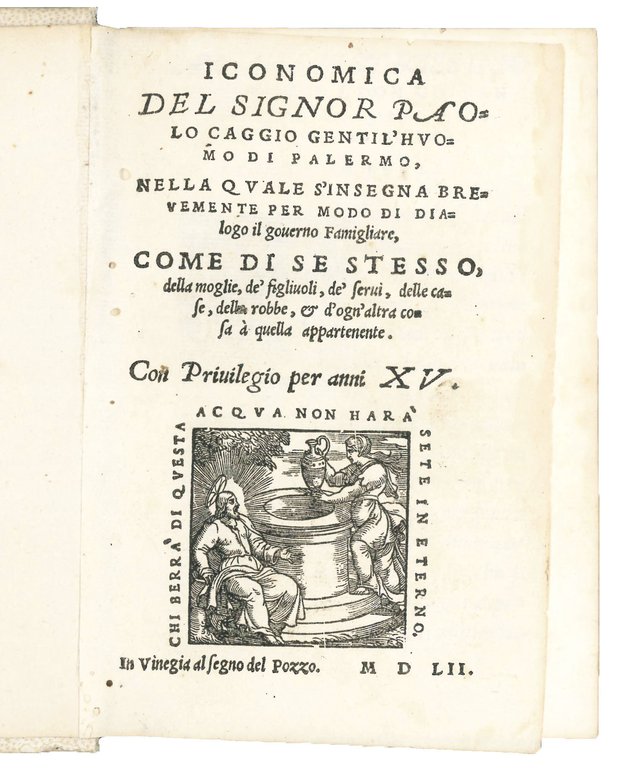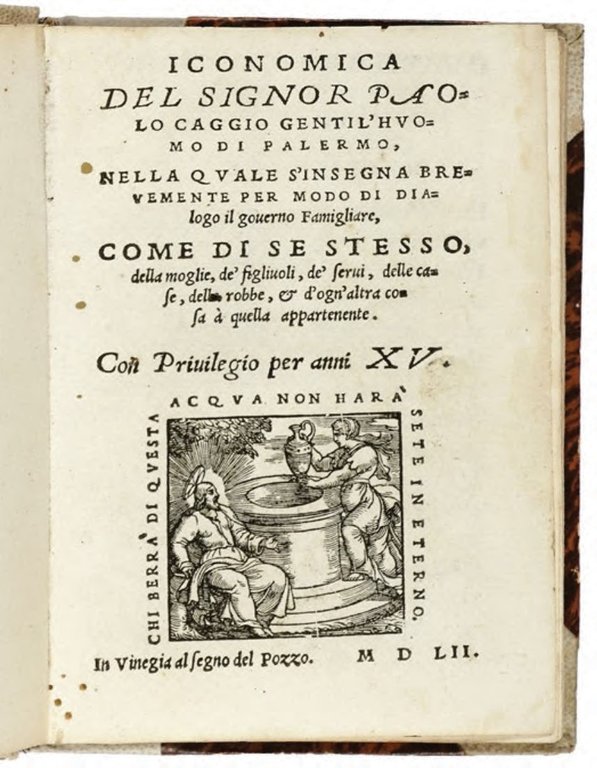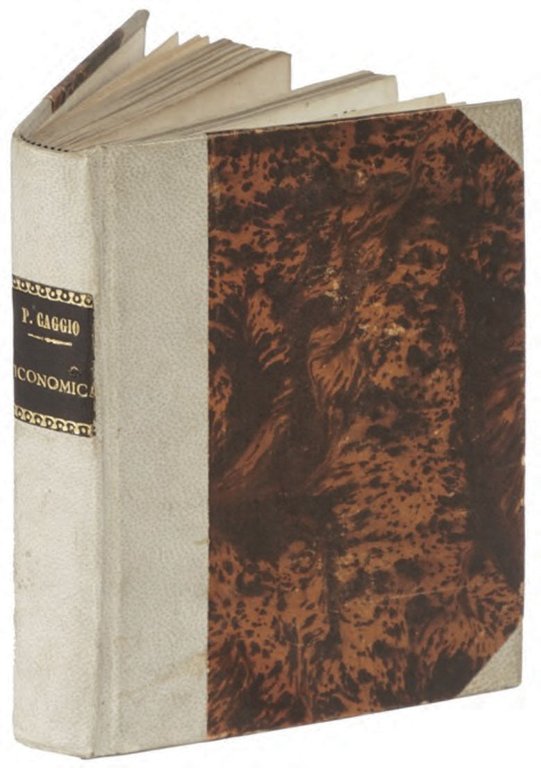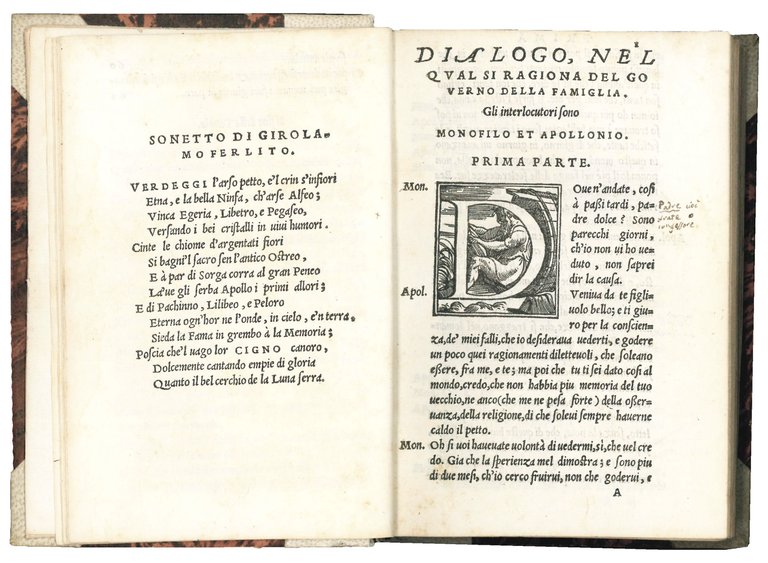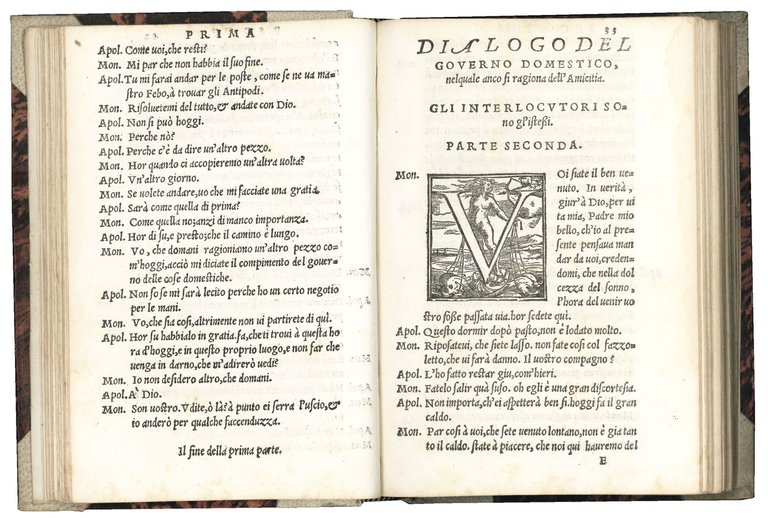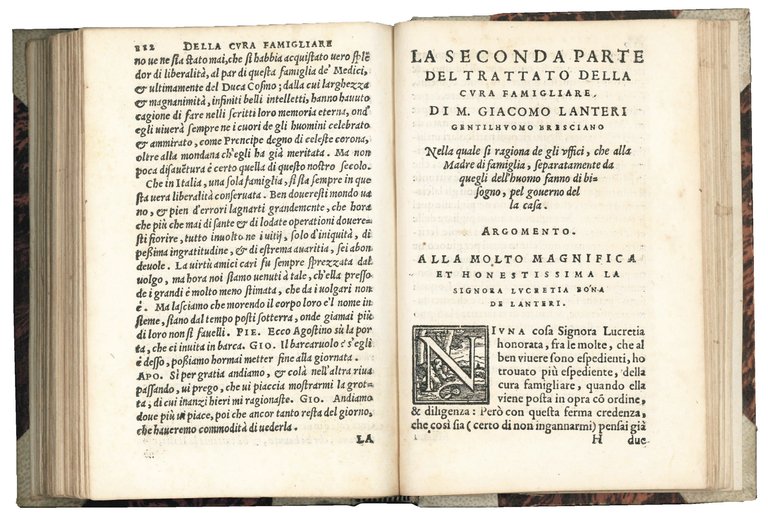CAGGIO, Paolo (d. 1562). Iconomica del signor Paolo Caggio gentil'huomo di Palermo, nella quale s'insegna brevemente per modo di dialogo il governo famigliare, come di se stesso, della moglie, de' figliuoli, de' servi, delle case, delle robbe, & d'ogn'altra cosa a quella appartenente
CAGGIO, Paolo (d. 1562). Iconomica del signor Paolo Caggio gentil'huomo di Palermo, nella quale s'insegna brevemente per modo di dialogo il governo famigliare, come di se stesso, della moglie, de' figliuoli, de' servi, delle case, delle robbe, & d'ogn'altra cosa a quella appartenente
Formas de Pago
- PayPal
- Tarjeta de crédito
- Transferencia Bancaria
- Pubblica amministrazione
- Carta del Docente
Detalles
- Año de publicación
- 1552
- Lugar de impresión
- Venezia
- Autor
- TWO EARLY WORKS ON HOUSEHOLD ECONOMY BOUND TOGETHER
- Editores
- al segno del Pozzo (Andrea Arrivabene)
- Materia
- Quattro-Cinquecento
- Conservación
- Bueno
- Idiomas
- Italiano
- Encuadernación
- Tapa dura
- Condiciones
- Usado
Descripción
8vo. [8], 64 leaves. Collation: *8 A-H8. Printer's devices on the title page and at the end. Woodcut historiated initials. Roman and italic type.
Rare first edition, edited by Girolamo Ferlito who signs the dedication to Bernardino Sanseverino, Duke of Somma, from Venice on 15 May 1522. The work was reprinted by Arravabene the following year.
Caggio's Iconomica is written in the form of a dialogue that takes place over the course of two days between two interlocutors, the aged and wise Apollonius and the young and impulsive Monophilus. In the form of benevolent instruction, Apollonius tries to persuade Monophilus of the need to form a family. To this end, the author analyses a wide range of issues relating to family government, such as what the family is; the differences between the prince and the father of the family; the qualities and virtues required of a woman to be an excellent wife and mother (Caggio shows great respect and admiration for the female gender); the differences between the two sexes that make them complementary (Caggio advocates relationships between men and women characterised by mutual understanding and cooperation); the praise of marriage; the education of children (he also discusses the lack of good schools in the Kingdom of Sicily); the importance of cultivating good friendships; how to deal with servants; how to preserve and increase wealth; the value and development of agriculture; the duties of the father in order to make the family administration prosperous; and so on (cf. G. Ratto, Introduzione, in: P. Caggio, “Iconomica”, Naples, 1986, pp. 11-82).
Paolo Caggio was born in Palermo around 1525 into a wealthy family of senators. He studied law and held several public offices during his career, including the post of secretary or chancellor of the senate. He apparently never left Sicily during his lifetime. The publication in Venice of his works (Ragionamenti, 1551; Flamminia prudente, 1551; and Iconomica, 1552) was undertaken by his friend Ottaviano Precone, Bishop of Monopoli. In 1549 Caggio founded the Accademia dei Solitari to promote the spread of the Italian language in Sicily through the study of the works of Dante, Petrarch and Boccaccio.
“The play (Flamminia prudente, Venice 1551) is thus to some extent the ‘female' counterpart to Caggio's Iconomica, in which male speakers discuss male prudentia and which was aimed at an educated and thus predominantly male audience. Against this background, the choice of genre also appears to be gendered: the dialogue (Iconomica) is addressed to male recipients, the entertaining and educational play (Flamminia prudente) to a mixed audience - although in the latter case the economic-didactic part is explicitly addressed to female viewers, whereas the literary satire is presumably addressed primarily to a male audience (and especially to scholars). This can be explained not least by the fact that, compared to the theoretical discourse, the theatrical performance reaches a potentially wider circle of female recipients, namely those women who have little literary education or are illiterate. Especially in its final form, the performance of the drama also has a liveliness that treatises and dialogues, because of their written form, cannot achieve. In addition to this, catchy linguistic register, brevity and entertainment enable a comedy such as the Flamminia prudente to appeal to a completely different audience than the theoretical genres” (Ch. Schaefer, Weibliche “prudentia” auf der Bühne. Zur Inszenierung ökonomischer Konzepte in Paolo Caggios “Flamminiaprudente” (1551), in: “Das Haus Schreiben. Bewegungen ökonomischen Wissens in der Literatur der Frühen Neuzeit”, Ch. Schaefer & S. Zeisberg, eds., Wiesbaden, 2018, pp. 145-146).
Edit 16, CNCE8270; USTC, 817608.
(bound with:)
LANTERI, Giacomo (d. 1560). Della economica trattato di M. Giacomo Lanteri gentilhuomo bresciano nel quale si dimostrano le qualità, che all'huomo et alla donna separatamente convengono p
